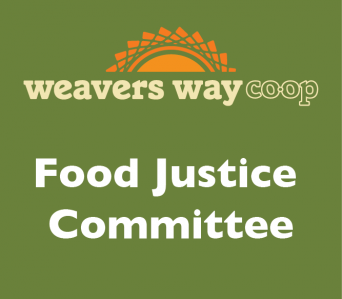
Food Justice Committee: SNAP Program Recipients Face Cuts; Here’s What You Can Do to Preserve Your Benefits
Beginning April 1, federal SNAP benefits for able-bodied adults without dependents (ABAWDs) will be cut to three months during a three-year fixed period unless the individual qualifies for an exemption or satisfies their work requirement.
The rules define an able-bodied adult without dependents as an individual (1) receiving SNAP benefits who is (2) between 18 and 49 years old; (3) without children under age 18 in the SNAP household; and (4) is able to work.
These rules affect an estimated 34,000 Philadelphians; therefore, it’s likely that some of our community members, including Food for All participants, are at risk of having their SNAP benefits cut as early as July 1.
It’s imperative that people subject to the time limit take action to establish an exemption or to otherwise demonstrate compliance before losing their SNAP benefits. People classified as ABAWDs under the new rules can preserve their full SNAP benefits by establishing that they qualify for an exemption or by demonstrating that they satisfy the work requirement.
ABAWDs may qualify for an exemption if they:
- Receive temporary or permanent disability benefits;
- Are physically or mentally unable to work 20 hours per week;
- Are in a substance abuse treatment program;
- Are pregnant;
- Are living with a child under age 18 who is part of their SNAP household;
- Are receiving unemployment compensation (or have an application pending);
- Are needed in the home to care for someone who is disabled or incapacitated;
- Are homeless; or
- Are experiencing domestic violence (may require completion of PA 1747 Domestic Violence Verification Form).
A PA 1921 Medical Exemption Form completed and signed by the individual’s doctor, nurse practitioner, psychologist, social worker, mental health counselor, or any other medical provider whose services would be covered by Medical Assistance, is required to document physical or mental disability, pregnancy, or participation in a substance abuse program. The form can be found on the DHS website (www.dhs.pa.gov) on Community Legal Services’ website at www.clsphila.org/abawds.
For those exemptions that do not require the medical exemption form, other proof may be required to establish eligibility. We recommend calling the Customer Service Center at 1-877-395-8930 (or 215-560-7226 in Philadelphia) to determine what proof is required to establish that an exemption applies and to provide this information as soon as possible.
ABAWDs can also maintain full SNAP benefits by demonstrating that they satisfy the work requirement. The criteria include:
- Working at least 20 hours per week on average, documented with pay stubs or other verification from employers;
- Participating in an eligible work training program at least 20 hours per week on average (proof of participation required);
- Enrolling in an educational or training program at least half time, as defined by the program; or
- Volunteering or performing community service for approximately 26 hours per month. Completion of the Community Service /Volunteer Participation Form (including staff signature) is required. If an ABAWD needs help finding a volunteer site, the County Assistance Office may be able to help locate one. The Community Service Participation form can be found at www.clsphila.org/abawds.
If an individual loses their SNAP benefits, they can reapply and have them restored if they are able to demonstrate that they are subject to an exemption or meet the work requirement. If DHS denies or cuts off SNAP benefits for an alleged failure to meet an exemption or the work requirement, the individual has the right to ask for a fair hearing. If the appeal is filed within 12-15 days of the notice of cutoff, SNAP benefits should continue while the ABAWD waits for their hearing date.
As of now, we don’t know how recipients will be notified of the new rules or how they will be applied. The Food Justice Committee is especially interested in locating resources for those whose benefits terminate because they neither qualify for an exemption nor satisfy the work requirement. We are monitoring this situation and will publish updates as the rules take effect and more information becomes available.
Many thanks to Louise Hayes, Esq., supervising attorney at Community Legal Services and a Co-op member, for her contributions to this article.
